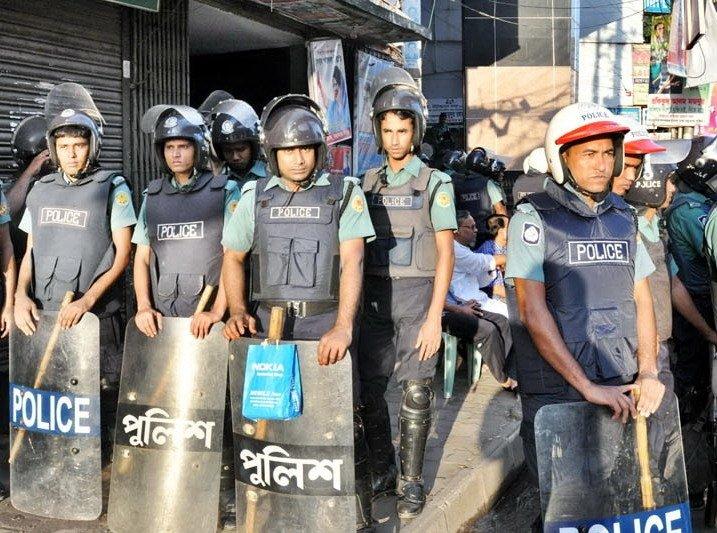Bangladesh strike over fuel price hike paralyzes daily life
Thousands of anti-riot police were in the streets of Bangladesh’s capital city Thursday, Sept. 22, 2011, as the opposition alliance launched a day-long general strike in protest of a fuel price hike.
September 22, 2011
Thousands of anti-riot police were in the streets of Bangladesh’s capital city Thursday as the opposition alliance launched a day-long general strike in protest of a fuel price hike.
The strike, occurring all over the country, paralyzed daily life as road communications were heavily disrupted and schools and business establishments remained closed on Thursday, the last working day of the week.
The usually busy streets of the capital, Dhaka, looked almost deserted as most means of public and private transportation remained off the roads.
The opposition group Bangladesh Nationalist Party and its allies, mostly Islamic parties, called the strike after the government raised the price of petroleum fuels and compressed national gas on Sunday.
Dhaka’s police chief, Benazir Ahmed, said his department deployed 13,000 policemen alone in the capital to break up any opposition protests, and the home ministry also initiated mobile courts to try protesters summarily on the streets.
Police said that the strike was mostly peaceful apart from a few incidents of violence, but the opposition parties said the police and the ruling party men beat up their activists wherever they had tried to bring out a procession.
Police said they had arrested some 200 people from different parts of the country, but the opposition claimed that the number was at least 400.
The BNP acting secretary general, Mirza Fakhrul Islam Alamgir, said, “The government has increased fuel prices at a time when people’s suffering has already peaked due to high inflation.” But the government said it was an “issueless” strike.
The general secretary of the ruling Awami League, Syed Ashraful Islam, said it was illogical as the prices of fuel oils were still lower in Bangladesh (a liter of gasoline costs US$ 1.06) than in the international market.
“If the prices of fuel oils increase in the global market in the future, the government will increase the prices again because the government will need to pay huge subsidies otherwise,” he added.
The fuel price hike, the second such rise in four months, triggered protests also by transport owners.







